An Exclusive Feature supported by the LITHUANIAN COUNCIL FOR CULTURE.
Photography by Vaidas Jokubauskas and Vismantė Ruzgaitė. A ZEFYR LIFE film series supported by the Lithuanian Culture Council.
“Low” comes from breakdancing by Laurynas Žakevičius and from his inner peace. “Air” stands for Airida Gudaitė energetic hip-hop dance. Together they are a Lithuanian acclaimed artistic duo known as Low Air – contemporary and urban dance choreographers and dancers. To look for the meaning of Low Air, one has to search somewhere between the constant paradox (as if the Air could ever be Low) and the ever-existing thirst for experiencing and understanding reality (as if there is never enough of Air). The first reference point is forcing us to live through the discrepancies, question the norms and our ways of thinking; the second one insists on always feeling the urge to create, igniting the constant search for meaning and at the same time acting as a reminder that we all are merely small pieces of that never-ending quest for creativity.
Low Air's mission is to raise awareness of the Lithuanian street dance culture within the cultural communities and the wider public, to develop dance performances and broader for all opportunities to learn.
Airida GUDAITE: Hello, my name’s Airida. I am thirty-six. That is if age matters! [Laughs]
Laurynas ZAKEVICIUS: Thirty-five! [Smile]
GUDAITE: Thank you, Laurynas, was would I do without you? [Laughs]
ZAKEVICIUS: I am Laurynas, I am thirty-four, a dancer, a choreographer, a teacher.
Lina LAPINSKIENE (ZEFYR LIFE): How did you two meet?
ZAKEVICIUS: This is even difficult to remember. Maybe it was back in 2010, maybe even 2009. There was a project, organized by the Director of the Kirtimai Culture House untitled "The Alley of Arts” and one of the activities within that project had to be dance. And she [The Project’s Director] said to me, “I know someone who could be a great fit for your team, I know a dancer, a teacher named Airida.’ Her son was dancing with Airida. Then I found on the Internet where Airida was working, and so I went there, and told her about the idea. Then we lost touch for a bit. And after a while we met again randomly one day as fellow dancers at the opening of a dance studio! [Smile]
GUDAITE: All started to evolve when we started taking part in some big TV shows together. Laurynas had already taken part in the first Season of the "You Can Dance” television show. At the time when we had just created our Facebook accounts. I remember very well how I wrote to Laurynas via “Messenger”, asking if he would like to take part in that TV Show again because I would be taking part the next year. I was involved with a project in Germany at the time, I was performing with dancers from different countries and I thought it was time for work first of course, but I was really keen on taking part in the TV Show’s new upcoming Season. I was very happy because it was a format that was well followed in other countries too. It was a great platform for dancers to show up. And Laurynas answered, "Maybe I will attend." And subsequently he and I started to become much more acquainted because then Laurynas started to come to my dance studio to rehearse [Smile].
ZAKEVICIUS: I needed space to rehearse because I had nowhere to do it, so of course I started asking Airida if she would let me use her space [Smile]. Maybe some sympathy had arisen at that point too, and it was a great opportunity to spend some more time together. This is how our collegiate relationship was formed between us: That initial request I made to use her space for my rehearsals, then asking for her input and guidance [Smile].
GUDAITE: At the time, I thought you were so understanding, talkative, friendly, but also demanding.
ZAKEVICIUS: Back then [during my rehearsals]? Or when we started living together?
GUDAITE: No, at that time when you started getting ready for your solo performance. I liked your attitude and your communication style. I thought that you were a very interesting person. Sympathy arose later, when we started living together.
ZAKEVICIUS: Yes there were three of us back then. Airida, myself and some other friend started renting an apartment and living together. Airida lived with two Laurynas at one time [Smile].
'AT FIRST, THERE WAS SUCH A BEAUTIFUL FRIENDSHIP BETWEEN US,
AND THEN GRADUALLY GRADUALLY,
A MORE ROMANTIC SYMPATHY DEVELOPED
OVER THE COURSE OF THE NEXT SIX MONTHS.'
GUDAITE: In Antakalnis. It was such a nice and spacious apartment. We were dreaming that we would be street dancers there. Wishing that other dancers would come from Kaunas, even to our home, and that we would organize dance battles, "jams". There was a period of dizziness, of dreaming. And I remember that at the time Laurynas was riding a scooter everywhere, and I asked him to take me to work with that scooter. At first, there was such a beautiful friendship between us, and then gradually, gradually, a more romantic sympathy developed over the course of the next six months.
ZAKEVICIUS: So, these were our beginnings [smile]
GUDAITE: I can still recollect some moments when at the beginning of our friendship I started thinking that maybe Laurynas was starting to pay attention to me too. Because I always liked to cook dinner for us, and I once said that I spotted some new curd with raspberries at the supermarket and also mentioned that I liked green bananas. And all of a sudden from time to time, I noticed that some green bananas were appearing in the fridge [Smile] That made me realize that Laurynas was paying attention to me too. And another time I opened the fridge and saw the curd with the raspberries! [Laughs] These are such small details, yet they made me notice that Laurynas was so attentive. I realized that he was paying attention to every single word of mine.
LAPINSKIENE (ZEFYR LIFE): Do you believe in the power of dreams?
'I REALLY BELIEVE IN THE POWER OF A DREAM. IT IS SCARY TO SAY,
BUT EVERYTHING I DREAM ABOUT DOES COME TRUE.'
GUDAITE: I really believe in the power of a dream. It is scary to say, but everything that I dream about does come true. Maybe because I'm visualizing, say, what my daily life will look like two days later, a year, or five years later. Of course, not only do I dream, but I strive to work towards that dream, towards making that dream come to life. It has even become a little scary lately that all such big dreams of mine seem to have come true. And I once said to Laurynas, "Laurynas, it seems to me as if I no longer have dreams." In youth, those dreams were very materialistic, about professional recognition, doing beloved and good work, creating well being [for myself] and well being for others. And I think that once those material dreams have ben fulfilled, then you go back to your spiritual dreams. To keep calm inside.
ZAKEVICIUS: There is a pyramid of needs, you first secure material security, and later on, outward-looking things, creativity and so forth.
LAPINSKIENE: I think when your practical life is sorted, then there is space for remembering what really matters.
'(...) FREEDOM, A SENSE OF A WORK WELL DONE, CURIOSITY, STUBBORNESS,
DREAMING, THESE ARE HUMAN QUALITIES THAT FULFILL YOU.'
ZAKEVICIUS: Yes, because in reality, once you have a lot, you realize that it would be the same if you didn't. Those material possessions do not give you more happiness. Whereas freedom, a sense of a work well done, curiosity, stubbornness, dreaming - these are very human qualities that fulfil you.
That vision of your journey, the appreciation of what you aspire to and the place where you are now, you realise that everything depends solely on yourself.
GUDAITE: If I hadn't had those primary needs fulfilled, I'd probably still be pursuing them of course. There are similarities between the inner journey of a person and his dreams and the physical journey of that person: The more we travel abroad, produce plays, see other countries, the more beautiful Lithuania appears to me, and I want to spend more and more time here! And not just because of family, but because of everything. Before, a few years ago, what was first and foremost important to me was to go somewhere abroad for shows.
LAPINSKIENE: Where does that desire to travel come from?
'EVERYTHING YOU DO NOT KNOW, YOU SEEK YO KNOW'
GUDAITE: I'm thinking it was born out of curiosity. This is similar to dreaming: Everything you do not know, you seek to know. To know how young people live elsewhere, how they behave, how they dress, what they live for. To know their way of life. Just from wanting to understand and to know more.
ZAKEVICIUS: It comes from wanting to know more. During my childhood, there were no palm trees around, so it was a must see. Seeing a palm tree was such a dream! What you don't have becomes a bit idealised. Maybe we take for granted what we have around, we appreciate it less. When you start traveling, you start analyzing yourself, and how you feel lying on the Baltic Sea, and how you feel about some other seas. Seas, water, are basically the same. And yet somehow we are unable to appreciate what is around us already just because those things are nearby, self-evident.
Some trips are merely about meeting certain needs, for example climbing mountains - as there are no mountains in Lithuania. Or deep diving. Basically that aspiration to travel somewhere is probably different for everyone. But for me, it has always been out of curiosity. The desire to make contact with someone abroad, check with other artists whether your ideas reflect the trends of this world. And there are interesting platforms out there to discover amongst cultural figures and artists.
LAPINSKIENE: How do you see Lithuania now? Has your outlook changed since you have been traveling so much?
GUDAITE: For me, Lithuania is constantly changing. Especially when we reopen our dance school again each autumn. I usually notice some change in Lithuania after the summer. Especially because of the young people that I see in the streets. Yesterday Laurynas and I took a walk in the city and looked at the youth and really it feels very different from what it was like a few years ago. Before, I used to feel that I was standing out in the crowd because of my unusual style (because the street dance subculture has its own specific style), now everything is so interwoven, the youth is so bold and 'fresh'. At the end of every summer I feel like things are moving forward again and the city is reborn. There are a number of new bike lanes appearing that Laurynas and I had been wishing for for a while. All in all, this is a country of great potential for hardworking youth. When you go abroad you see a lot of good dancers, you feel good in that context, but what if I was living there? I would probably have to deal with greater competition, I would have to spend a lot more time working and rushing. In Lithuania now is the perfect time to be active and pursue your career, to be creative, to express yourself and to enjoy the fact that we still have so much nature, a lot of freedom. The city is not so crowded yet. It is very nice in Lithuania!
LAPINSKIENE: How have you become a duo? What does LOWAIR mean? Is that a combination of your names Laurynas and Airida?
'WHEN YOU WILL START DANCING,
PEOPLE WILL NOT BE DANCING JUST IN THE STREETS,
BUT EVERYWHERE ELSE TOO,
PEOPLE WILL BE DANCING'
GUDAITE: Our first performance was so very idealistic thinking. There was no Lowair yet. We attended the Vilnius Arts Printing House summer workshop, and I remember the words of the esteemed Audronius Imbrasas very well: ‘When you will start dancing, people will not be dancing just in the streets but everywhere else too, people will be dancing’.
At the time, he was the Head of the Arts Printing House, and just at that time they had announced an “Open Space” for young artists. To this day, that space is still active. The idea behind that platform is to select young artists and produce their work. In other words, a young artist gets all sorts of support, consulting, and access to directors. On the last day before the deadline, we filled out that application. Laurynas and I knew very clearly that we wanted to work together, the two of us. We couldn't however imagine what the heck we wanted to do exactly yet, so we wrote a bunch of different things when we filled out that application. I think what made us win that competition was our youthful naivety and our enthusiasm. I remember, when we had to go before the jury, everyone else was there with some heartfelt presentations and some slideshows and we had nothing but an idea. And so we just talked about it [Smile].
ZAKEVICIUS: They were interested in us maybe because we were dancers coming from the streets.
GUDAITE: At the time we were not fitting in any box. We wanted to bring that underground culture, street dance, one step forward. At university Street Dance was not a discipline.
ZAKEVICIUS: It wasn’t. And now it is. Compared with abroad, there were many examples where street dancers had been performing on a theatre stage, and in Lithuania this had never happened before. We were not under the name “Lowair” yet. Some time ago, a colleague suggested that we should simply call our duo “LowAir’’ as in ‘Laurynas and Airida’. Then we started thinking about what that meant, and exploring this name further we figured that this word “Lowair”, which was reflecting a lot of our personal traits. Our dance styles firstly: one is “Low” and the other is “Air”. There are many other nuances in our personal characters that are well represented in this whole concept.
GUDAITE: We would not have used this name without that second layer – its [deeper] meaning. It’s not just Laurynas and Airida. I'm very happy when people ask what “Lowair” means, that they actually don't associate our personal names with that name. Sometimes we don’t even tell people about our names in the title, we start to explain the concept around our characters and the other meanings of Lowair. That seems more important to us.
LAPINSKIENE: We filmed Svajonė and Paulius Stanikas in Paris, a famous Lithuanian artists couple who create and live together. Svajonė said that sometimes she even forgets how to walk when she is alone, because they are so used being together all the time. What is your relationship like? Are you always a duo or are you two individuals that get along together?
GUDAITE: Our duo is our identity, we are inseparable. At times friends seem to try separate us, asking "Maybe one day you will do something on your own?" And maybe we will, because somehow you don't want to put a limitation that we are nothing else but a duo. Individually, we want to create, but I really enjoy that two-person relationship in creativity. We complete each other and I am glad that we can lean on each other, ask each other things and debate. It's valuable to me to be in a duo, I'm very happy about it,. I don't want to run away from this. Laurynas is my friend, my partner, my colleague and sometimes my biggest critic. And I wouldn't change anything.
ZAKEVICIUS: I agree. That oneness in the creative process is nice. If you come up with something on your own, sooner or later you directly or indirectly seek feedback, approval or disapproval. And those comments really affect [our work]. Then the end result changes. Whether it is Airida or I, we are very respectful of each other's opinion and we affect each other. In our creative work, we are choreographers, performers, and we are very open to communicating and collaborating with other professionals. It is interesting to us. We may be movement-oriented, but we allow directors or musicians to join and create together.
GUDAITE: In general, I strongly believe in the power of a team. It doesn't prevent you from creating or expressing your ideas in a personal way. Of course, sometimes compromise may not be the best, but if you have a strong argument, if you have a lot of faith in your idea, you shall be able persuade your other team members. It is a greater opportunity to learn from each other, to know each other. It is a great gift and of great value to me. I surely know, that I wouldn't want to close myself alone in a studio. Maybe one day I would, but not now. When I am asked, "when will you have a solo show?" I am surprised at the question, because I don't even think about such things.
ZAKEVICIUS: And what does a solo show mean anyways? One on stage and seven others behind the scenes? [Smile]
GUDAITE: Exactly.
LAPINSKIENE: Do you have a mission?
'I WOULD SAY (...) SIMPLY PUT [OUR] MISSION IS JUST
TO MAKE THE WORLD A BETTER PLACE.
IT SOUNDS IDEALISTIC I SUPPOSE.'
GUDAITE: I would normally say that the mission changes from year to year depending on our goals, but simply put it is just to make the world a better place. It sounds idealistic, I suppose. To explain further, I would love to help all at Low Air Dance School - my team, the teachers team, those who dance with us - to fulfil their dance dreams. Whatever these dreams might be, being able to take part in dance battles or the desire to perform on stage. Those little dreams are very big at the same time. For instance what seems to be merely a desire to be on a stage (which may even seem egoistic), requires in fact a great deal of inner courage and is a liberating experience. I understand the people who come to us with some purpose, and that could just be learning to dance for an upcoming family party. I’d like to give as much as I can give from my field of expertise, as a dancer.
ZAKEVICIUS: Totally agree. That mission is through my example, my work. When people value you based on what you have achieved now and look back at what it was. What the journey has been, and what the steps were. What a person needs to go through. I have fulfilled my dream of dancing, of being in culture, being able of enjoying myself. I can be an example to others. When we create a project or a performance, we somehow want to empower people so that they can also create, achieve things and have fun. And as Airida said, “To make the world a better place”, that is all there is.
GUDAITE: From a wider perspective, we would love for the Lithuanian dance scene to be noticed on the global stage. But I always go back to those simple things: everything starts with that little person who grows up, because some other people have really affected [inspired] him or her.
Over these past two years I have missed pausing more often. Making some time for myself. Being able to spend more time in the here and now. What comes from that is important.
LAPINSKIENE: Time for yourself is important. Can you elaborate a bit on this?
GUDAITE: It is about the time you give yourself to reflect. For instance following a performance I would like to be able to think how it actually went. What the audience was like, or how I felt during that performance. And most often there is no time to reflect. Sometimes you seem to be doing things merely out of inertia, with no spare time left for a spiritual moment. I sometimes feel like I am attending a course in mathematics (all is good with sciences though!) but that little particle is missing.
LAPINSKIENE: How do you explain simply, like to a child, why you need a spiritual understanding at all?
ZAKEVICIUS: To understand whether you need to do what you are doing at all. Whether it is valuable to you, or whether it is really your path. Whether you enjoy vanilla ice cream or chocolate ice cream, so you do not keep eating non-stop without thinking about what you actually enjoy. For taste, for temperature, for colors. To know how you feel and to understand how to act in the long run. And if you want to become the President of a Country, you need to do things accordingly. That self-reflection is needed. We help each other to see things clearer too.
LAPINSKIENE: You both have inner power and courage. Where do you think this comes from?
GUDAITE: That courage actually comes from a lack of knowledge and out of curiosity, because you want to learn things. I also think that we have been gifted patience. I can work hard, I can achieve things. Maybe this also comes from the time when there was actually a deficit, when we were trying our hands at everything.
ZAKEVICIUS: It’s out lacking things.
GUDAITE: Then you start doing what you like, you realize here is your thing! You start realizing yourself, you realize you can achieve your goals. Then comes the greater faith in yourself, and the more successes you get. You realize that you have to work hard and that if you do not reach your goal the first time around, well, the next time you will.
GUDAITE: And that ignorance thing [the craving to learn]. Maybe now when people talk about us, we don't hear about any of our past big disappointments or difficult experiences. Some other people would just stop after a certain number of failures, and we had the patience to not drop all and carry on trying.
'IT IS NOT JUST A MATTER OF PATIENCE BUT ALSO OF SELF REFLECTION.
(...) IT IS VERY IMPORTANT TO ANALYZE WHY YOU "FAILED"
- OR WHY YOU HAVE SUCCEEDED.'
ZAKEVICIUS: And it's not just a matter of patience but also of self-reflection. Why things happened one way and not another way. You sit down and assess. What you did right, and what you did wrong. Often it seems to me - and I might be generalizing, but that is my feeling - that many young people after failing just drop things and start doing something else, without ever reflecting on their experience. Things are changing fast. It is very important to analyze why you "failed" - or why you have succeeded. Whenever I fail at writing a project, I always seek the feedback of all the experts as per why they evaluated it in one way or another. You learn from your mistakes, so next time you don’t repeat them. I am a fervent believer that street dance can be a great tool to educate some children. When children from difficult families (or children without parents or with parents but from a very rough environment, including alcoholics, drug addicts) come to our dance studio they just do, not ask questions about whether they will succeed or fail. They just do it. They have a certain courage because they do not have anything to lose. They have less fear of taking risks. And other young people whose parents are well off raise a lot of questions and are not as laid back.
GUDAITE: Also, at times parents are bringing their children to our dance studio simply as a way of filling their kids’ daily activity schedule, so they can go about their jobs while their children are here. Sometimes these kids do not even know if they like dancing. A child does not always know if he’d prefer swimming in the pool or playing football. Our mission is to hang out with that kid, and figure out whether he really wants to dance or if maybe his parents are simply pushing him.
LAPINSKIENE: I imagine that a young person learning to dance is learning more than just dancing: say getting up after falling, some communication skills, directing and more?
ZAKEVICIUS: Yes, in fact we are not even teaching anyone to dance. It is more about your body, the conscious awareness of some parts of your body, a healthy posture. Being free in your own body, as movement is a cure for many things.
GUDAITE: And not only a cure for the body, but also for the mind. For me, dance is a complete emotional health enhancer. When people come to the dance studio they come in with some emotions that they were not able to let go, and through movement they are able to release them. To let go. If your child is irritated or aggressive, you will notice that after the class he is more relaxed, with a smile and a different mood than before he came in. When our bodies are active, our thoughts are completely different.
ZAKEVICIUS: When we started a dance school, we thought we were about "Creative Minds and Intelligent Bodies”. Movements that makes the body smarter, more capable.
LAPINSKIENE: What is a good piece of dance for you?
GUDAITE: Context determines what a good dance is. It depends on time and location. My mom could perform a good dance on her birthday in a kitchen! [Laughs].
ZAKEVICIUS: But then if you take that same dance on stage, or to the street, it wouldn’t work. You also need to create a message.
LAPINSKIENE: In our conversation with photographer Antanas Sutkus, he said to us, “I find the world ugly". I wonder how you find the world?
ZAKEVICIUS: Antanas Sutkus has much more experience than we have.
GUDAITE: My view of the world is changing day by day. It is somehow related to our mission and so I want to imagine the world as a good place for good people to live.
ZAKEVICIUS: By reflecting on what is happening in the world, artists express through their works their views about the world, so the world is shown in some new, different colors, which make people think. Many art projects have changed the world in one way or another, be it attitudes towards the system, social status, the role of women in society and so on.
GUDAITE: Art actually clears things up. Art is able to change things. To me, art makes a person a little better, gentler.
ZAKEVICIUS: If I want to change the world] I have to start looking at myself, because it is me who is creating the world too (at least a small part of it). Man does not need much. Or one could say, you need to think less about yourself and more about the world around you. Stop worrying about yourself so much.
GUDAITE: Today, it seems to me that there is too much of everything. The world should be more about “less”. And only when you have experience, only then do you realize this. When in childhood your parents say, "don't pour compote on your dress during lunch at school.” Only once you have poured the compote on your dress do you realize that your parents were right and you should be more careful. Everything is an experience. Theory is just a theory.
LAPINSKIENE: Laurynas talked about thinking less about oneself and more about others.
'(...) WHEN YOU STOP BEING THE CENTER OF THE WORLD (...)
THEM THINGS START TO MOVE FORWARD'
ZAKEVICIUS: Yeah. I have a very strong inner critic. I don't know if it's a disorder or what, but I constantly keep talking to myself. There’s a viewer who watches me constantly. That is very frustrating. Those inner dialogues get tiring and when you shut them down, that gives you the energy to work, to be active. When you escape from your own thoughts, those self-critical thoughts, when you stop being the center of the world, when you stop thinking whether you look good or bad, then things start to move forward. I like that simple saying by the founder or ambassador of Unicef who once said "We all have hands to help others." That's all you need!
LAPINSKIENE: I thought a lot about it. It is easy to feel better when you think of others, rather than about yourself.
GUDAITE: Yes, when you think about Christmas presents, it is much more fun to give one than to receive one. When you are thinking about what to give as a present, this is fun because you really think of that person. It is not merely about the material things, it is nice to give.
LAPINSKIENE: Is there a cause or a social issue that you care about deeply?
GUDAITE: Yes, our performances are about social issues. We cannot name just one issue that we care about. We are talking about our lack of tolerance, about consumerism, about the feeling of loneliness. Now with regards to the dance school I am thinking about engaging with and getting older people involved. The elderly are feeling excluded in Lithuania. We feel that we can help bring some change there.
'(...) I FEEL PAIN AND INJUSTICE SEEING SOME OLDER
PEOPLE WRITING THEMSELVES OFF A BIT TOO EARLY'
ZAKEVICIUS: In addition to that, I feel pain and injustice seeing some older people writing themselves off a bit too early. Reading books like “One hundred Years Old Stories” was such a fantastic inspirational experience. There are so many older people who are still energetic. We want to empower elderly people. We dance abroad with older people, they do not even think that dancing is “not for them". They do what they want. People underestimate themselves. Through creativity you can discover how to love, how to act and change your world.
I also used to go to prison and hold seminars for inmates there. I would not go into those stories of what people did because some of them did really terrible things, but when talking to them, I realized that people make mistakes in life. Some make bigger, some – smaller mistakes. And some cross the line and others don’t. This fascinates me.
Another interesting thing I love is when two people are looking in each other’s eyes. Marina Abramovich's performance where she looked into many people's eyes directly [A show untitled ‘The Artist Is Present’] is really impressive because it carries a lot of meaning.
GUDAITE: The issues of status, power, and inequality - they are all important to us and they are very close to us in everyday life.
ZAKEVICIUS: I also have been to England to work as a nurse and the first client was paralyzed after a car accident, with a brain injury. I couldn't imagine what this meant; I promised myself that I would smile no matter what. For a year and a half I worked with people with disabilities and old people. This experience enriched me a lot. And talking to the people in prison is a very interesting experience. I remember a day when, as I was leaving a prison, one prisoner waved at me shouting out loud, 'Laurynas, are you coming back?'
I invited some of my naughty students or those from dysfunctional families to come along with me there, and I told them, "You will be my assistant.” They were really scared in prison. This way, you can indirectly make them aware of what could happen, when one makes some wrong choices in life.
LAPINSKIENE: And in what ways these years spent working as a nurse in England changed you?
' (...) WE PUSHED THE WHEELCHAIR CLOSER TO THE WATER.
WE PUT ON A SWIMMING SUIT, AND WE WENT SWIMMING.'
ZAKEVICIUS: I was young, it was just after graduation. It gave me a sense of tolerance and taught me to be fearless in any situation. Not getting disgusted easily. Some people are afraid of picking up someone else’s trash on the street because that is not sterile. I learned acceptance and have stamina to achieve goals. Especially with the last man whom I was taking care of. He was a twenty-six years old man, with a brain trauma, sitting in a wheelchair, who also had recessive paralysis and was psychologically affected. A very complex trauma. And I went on a vacation to Portugal with him and his family to help them. His father then told me that nothing would stop them from having fun during these holidays. We went to the beach, but the beach is not wheelchairs friendly. So we pushed the wheelchair closer to the water. We put on a swimming suit, and we went swimming. Through such experiences, you see that there are no boundaries if you decide that you don't want them. Such experiences are making your skin thicker.
GUDAITE: When I am with Laurynas I really feel that anything is possible. There are no barriers. Another person might drop all things [in the face of adversity] and stop trying, but Laurynas is the one who will always do his best. Or at least try.
GUDAITE: Going back to the previous question - about what causes are dear to us: One big issue in Lithuania is the high rate of suicides. This topic here is very sensitive. I think that dance can be of huge help, so I want to involve more people to move and not let them sink with low self-esteem issues.
LAPINSKIENE: What are you learning from each other?
GUDAITE: What I have learned from Laurynas first and foremost are order and cleanliness. From domestic tidiness to discipline in life, through to completing all our daily tasks, and taking notes. I have also learned openness and how to accept myself the way I am. I am learning how to be less self-critical. Sometimes Laurynas seems even too positive for me, to the extent that I sometimes wonder if he is pretending to be that optimistic [Smile]. He is able to see a positive thing in anything and learn from each failure. He knows how to enjoy life. If things go not so well, he remains able to turn things around to learn from the situation.
ZAKEVICIUS: We often laugh about that when we argue, Airida sometimes says, "if it wasn’t for me, there wouldn't be anything at all and you would have nothing" [Laughs]. In fact, there is truth in this. I can easily tolerate things to be one way or another, but Airida always knows how she wants things to be, and says “It’s either this or nothing”. That maximalist mind-set has lead us where we are now. And where we are at now is not a compromise, this is really where we want to be. Airida’s determination leads the way. When creating sometimes I cannot make decisions, because I find too many things beautiful: then Airida comes in and and puts everything together really well. She makes nice compositions both on stage and in life [Smile]
LAPINSKIENE: Thank you both!
GUDAITE & ZAKEVICIUS: Thank you!
You may learn more on LOW AIR HERE and on their INSTAGRAM | AND FOLLOW ZEFYR LIFE ON INSTAGRAM.




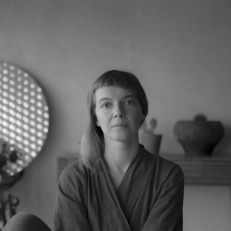
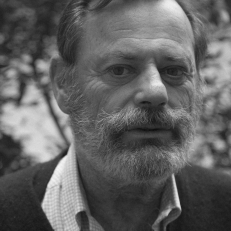
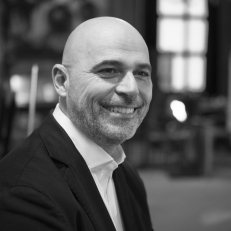
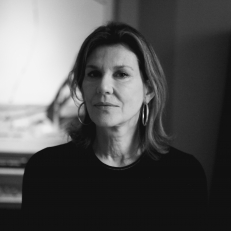
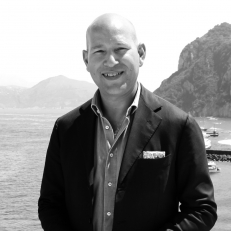
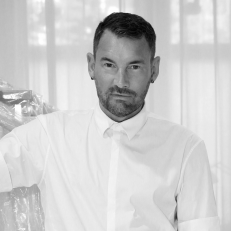
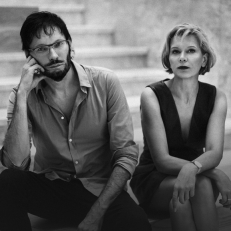
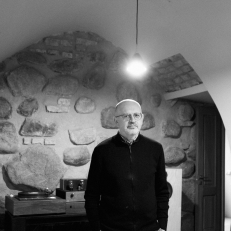
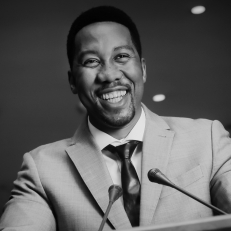
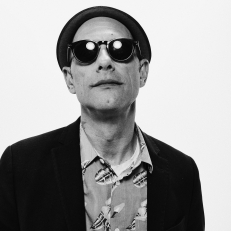


Add a comment